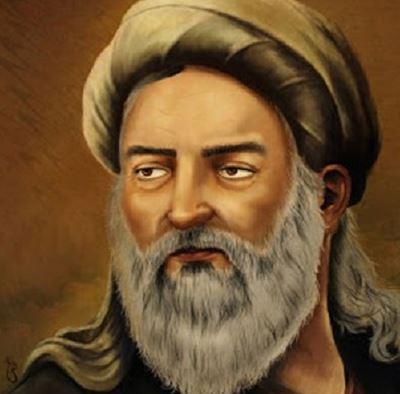
Shihab al-Din Yahya al-Suhrawardi, often referred to as Suhrawardi al-Maqtul (the “Martyred”), was a Persian philosopher, mystic, and theologian who is best known for his development of Illuminationism (or Hikmat al-Ishraq), a school of philosophy that focuses on direct spiritual illumination and mystical experience as the means to reach true knowledge and understanding of the divine. Suhrawardi’s teachings blend Platonism, Zoroastrianism, and Islamic mysticism, and they have had a profound influence on both Islamic philosophy and Sufism.
Early Life and Background
Suhrawardi was born in 1185 CE in Suhraward, a small town in the region of Azarbaijan (modern-day Iran). He was from a noble family and received an education in traditional Islamic sciences, particularly philosophy and theology. His intellectual journey led him to study Peripatetic philosophy (the philosophy of Aristotle and his commentators), but he soon grew dissatisfied with the purely rational approach of the time. He sought to integrate spiritual insight with intellectual philosophy.
Philosophical Contributions and Illuminationism
Suhrawardi's most important contribution to philosophy was the development of Illuminationism (Hikmat al-Ishraq), a unique and innovative system of thought. This philosophical system emphasized light as the fundamental principle of reality. His worldview was profoundly mystical, placing direct knowledge of the divine at the center of human existence.
-
Illumination as the Key to Knowledge: For Suhrawardi, illumination (or light) was not just a metaphor, but a metaphysical principle that governed both the material and spiritual worlds. He posited that all knowledge and truth come through the divine light. The physical world is a shadow of the divine, and the soul’s journey toward God is a movement toward higher levels of light and illumination.
-
Hierarchy of Light: Suhrawardi believed that reality consists of a hierarchy of lights. At the highest level is the divine light, emanating from God. Below this are the lights of the angels, and then, further down, the lights of human beings and material existence. Human beings can attain higher levels of knowledge by accessing spiritual light and moving closer to God. Suhrawardi's concept of light was influenced by Zoroastrian thought, where light symbolized the good and the divine, and darkness was associated with evil and ignorance.
-
Intuition and Mystical Experience: Suhrawardi’s philosophy emphasized the role of intuition and mystical experience over purely rational or logical reasoning. While the Peripatetic philosophers (such as Avicenna) emphasized logic and reason as the means of attaining knowledge, Suhrawardi argued that true knowledge comes from inner illumination—a form of direct mystical insight. This was a departure from the traditional reliance on reason, and it placed mystical experience at the forefront of philosophical inquiry.
-
Cosmology and the Spirit: In Suhrawardi’s metaphysical system, the universe is a vast network of lights, with each level of reality emanating from the level above it. The highest level is the Light of Lights, or God, and the world of light then extends downward through angels, spirits, human souls, and finally to the material world. This cosmological framework was intended to explain the relationship between God, the universe, and human beings, where the material world is a shadow of the higher spiritual realities.
-
Sufism and Mysticism: Suhrawardi's philosophy is deeply intertwined with Sufism—the mystical tradition of Islam. He saw the path to enlightenment as one of spiritual purification and direct communion with the divine. In Sufism, the heart plays a central role in spiritual progress, and Suhrawardi’s philosophy stresses the importance of inner purity and spiritual vision as necessary to access divine light.
His mystical insights emphasized the importance of contemplation and meditation to access the divine and attain higher knowledge. This aligns him with other Sufi philosophers, like Ibn Arabi, who also focused on the mystical experience of union with God.
The Martyrdom of Suhrawardi
Suhrawardi’s controversial ideas, particularly his Illuminationism, eventually led to his execution. His philosophical and mystical teachings were seen as a threat to the more dominant Peripatetic philosophers, especially those who adhered to the rationalism of Avicenna (Ibn Sina).
In 1191, Suhrawardi was imprisoned and executed by Seljuk authorities in Aleppo. It is said that he was killed on charges of heresy—his mysticism, combined with his ideas about the relationship between light and the divine, did not sit well with the more orthodox scholars of his time. His death earned him the title al-Maqtul ("the Martyred"), reflecting the fact that he died for his philosophical beliefs.
Legacy and Influence
Despite his early death, Suhrawardi’s Illuminationism had a lasting impact on the development of Islamic philosophy and Sufism. His ideas were influential in the later development of Persian philosophy, and his work was highly regarded by philosophers and mystics throughout the centuries.
-
Philosophical Influence: Suhrawardi’s thought played a significant role in the development of later Islamic philosophy, particularly in the Safavid period in Persia. His blending of Platonism, Neoplatonism, Zoroastrian thought, and Islamic mysticism would go on to influence later philosophers like Mulla Sadra, who integrated Suhrawardi's emphasis on light with theory of existence.
-
Mysticism and Sufism: His work had a significant impact on later Sufi mysticism. Suhrawardi's emphasis on direct mystical experience and illumination is echoed in the teachings of later Sufi thinkers, such as Ibn Arabi, who expanded upon the idea of spiritual light as a central theme in understanding the divine.
-
Theological and Esoteric Traditions: Suhrawardi’s views on light, cosmology, and spirituality also contributed to the development of various esoteric and theosophical traditions within Islam. His legacy lived on in the work of later mystics, and his ideas continue to influence thinkers in both the Islamic and Western traditions, particularly in the context of mysticism, philosophy, and spirituality.
Major Works
Suhrawardi’s writings are many and diverse, including both philosophical texts and mystical works. Some of his most important works include:
-
The Philosophy of Illumination (Hikmat al-Ishraq): This is his magnum opus, in which he elaborates on his Illuminationist philosophy. It discusses the nature of light and the relationship between the physical world and the divine light.
-
The Treatise on the Perfect State (Risala al-Hala): In this work, Suhrawardi explores the ideal state of the soul, emphasizing spiritual purification and the path to enlightenment.
-
The Book of the Radiance of the Divine: This work further elaborates on Suhrawardi’s vision of the spiritual world and the illumination that arises from the divine.
-
The Wisdom of the Prophets: A text where Suhrawardi examines the teachings of various religious prophets and the inner knowledge they brought to humanity.
Conclusion
Suhrawardi al-Maqtul’s contribution to Islamic philosophy and mysticism is profound, as he created a philosophical system that emphasized mystical illumination, spiritual enlightenment, and the idea that light is the fundamental reality of the universe. His work remains influential in both the philosophical and Sufi traditions, and his execution for heresy only served to cement his legacy as a martyr for philosophical and spiritual freedom.

